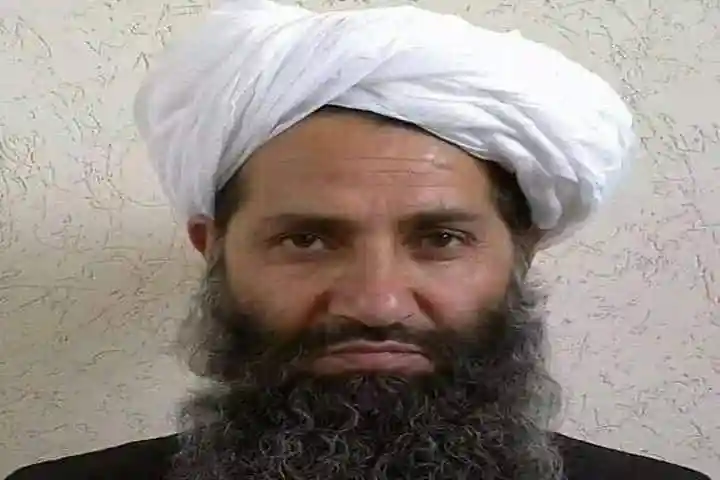Where is the Taliban's supreme leader Hibatullah Akhundzada? He has been out of the public eye after he became the chief of the group in 2016 after the killing in a US drone strike of Mullah Akhtar Mansoor, after he was returning from Iran. Mansoor was the successor of the one-eyed Mullah Omar, the group’s founder.
Akhundzada never made a public appearance, and, according to intelligence sources, he has been living under strict security of the Pakistani spy agency ISI in Karachi. Now the Taliban suddenly announced that their supreme leader has reached Kandahar.
“The news of Amir-ul-Momineen's death is false. He is alive and is currently holding consultations on political and military issues in Kandahar,” said the group’s spokesman Zabihullah Mujahid on Sunday.
Also Read: Taliban desperate to capture its place of birth–Kandahar
This is the first time in the last 20 years that the Taliban has revealed the location and presence of their supreme leader at a specific location, after the US invasion collapsed their regime in 2001.
“Our Amir will soon appear in public and will also be a part of the coming system of Afghanistan,” said the spokesperson to Reuters, “Slowly and gradually the world will see all our leaders and there will be no shadow of secrecy.”
“The leadership has assigned deputy chief Sirajuddin Haqqani and the other deputy chief Mullah Mohammad Yaqoob to finalize names for the cabinet,” the senior Taliban leader said. The final approval of the names would come from Akhundzada himself.
The Taliban have a long history of keeping their supreme leader away from the public gaze. The group's founder, Mullah Muhammad Omar, was rarely seen and stayed “hidden” in Kandahar, when the group came into power in its first edition.
In 2015, the Taliban confirmed covering up their former leader Mullah Omar's death for more than two years.
Akhundzada has adopted a similar elusive style.
Little is still known about Akhundzada’s whereabouts, his role, other than the release of annual text messages by the group during Islamic holidays. Interestingly, he did not issue any statement since the Taliban swept to power and took control of Afghanistan in mid-August.
Also Read: Will Taliban 2.0 fulfill its promise of an inclusive government?
Akhundzada is known as a hardliner religious scholar and a “ruthless” judge handing down death sentences during the previous Taliban rule in Afghanistan.
It was under his leadership that the Taliban had signed the Doha Agreement with the US in February 2020. In a text message then, Akhundzada called it a “big victory” for the group.
According to news reports, like the founder Mullah Omar, Akhundzada will play the highest role. He will remain the supreme commander and head of an apex political council. His three deputies will hold positions of the president and other important posts to govern the country. Akhundzada has never appeared on television or any video clips and there are very few photographs that exist in the public domain.
His deputies, on the other hand, are relatively more visible in the public eye. Akhundzada's first deputy, Mullah Abdul Baradar who represented the group during the Doha negotiations with the US, is head of the group’s political wing. There is widespread speculation that he will become President.
His second deputy, Mohammad Yaqoob, head of the Taliban’s military affairs, enjoys a strong following within the Taliban as he is the son and “heir” of Mullah Omar. The third, Sirajuddin Haqqani, is the powerful head of the Haqqani network, a US-designated terrorist organisation with strong ties to Pakistan, Saudi Arabia and Al-Qaeda.
In their internal consultations, the Taliban are also discussing the possibility of making either Sirajuddin Haqqani or Mullah Yaqoob the “Raees ul Wazara,” a position equivalent to a prime minister.
But it is not clear that like Mullah Omar, whether Akhundzada will be staying in Kandahar, the Taliban’s spiritual birth place or in a safe house in Pakistan. According to various reports, Akhundzada travelled to Kandahar under security provided by the ISI.




















